
Monday April 24, 2017
By John Ray
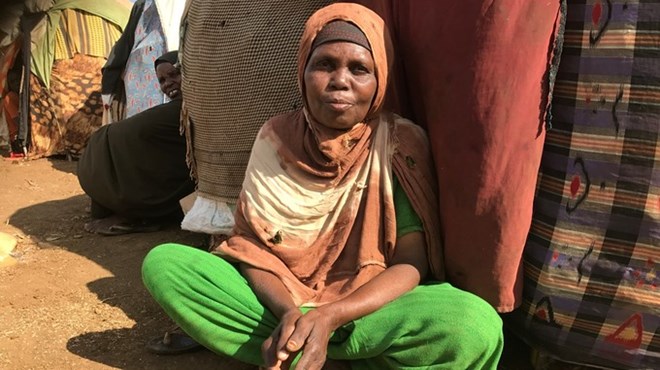 Suray Mohamed lost her husband and seven children to sickness. Credit: ITV News
Suray Mohamed lost her husband and seven children to sickness. Credit: ITV News
When Suray Mohamed left her village in search of food and water a few weeks ago she was a wife and mother.
By the time she arrived at the town of Baidoa she had become a widow and her children were dead.
Along the dusty road she watched them die, one by one. There were four boys and three girls.
In a soft voice, she names them: ‘’Isaak, Mohamed, Mustafa, Amina, Abdi, Ihdi, Hadija.’’ Her voice trails off.
"They should be sitting with me here. But I have nothing now, I have nothing now."
The first child died a few days along the road, she tells me, the second three days later. "On one day, a child died in the morning, then that night, another died," she said.
Suray squats outside her tent. There are 100,000 people in the crowded camps that have sprung up in the scrubby sands around Baidoa. But this woman is alone.
"The last was my baby I was still breastfeeding," she said.
"Some kind villagers helped me bury her. It was not a proper grave. The ground was too hard.
"I was not in my senses any more. I don’t even know how I got here in the end. I was lost in my grief."
In the camps here you will find many widows, and many grieving mothers. Hunger has driven half a million Somalis to leave their homes.
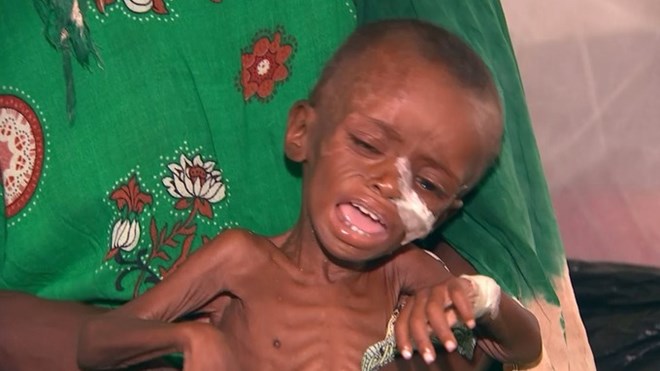
Thousands are suffering from severe malnutrition. Credit: ITV News
Yet for the moment hunger is not the main danger.
The drought has brought disease, and disease has brought death from dirty water in dried out wells and poor hygiene.
The most feared is cholera; it can kill in hours, preying on bodies already weakened by malnutrition.
Abaay Adbirahim Daud is 12.
She cradles her little brother, Abbas, as she waits in a patient queue for fresh water that comes spilling from a tanker organised by World Vision, one of the humanitarian groups working in Baidoa.
The gurgling water is the most precious commodity there is.
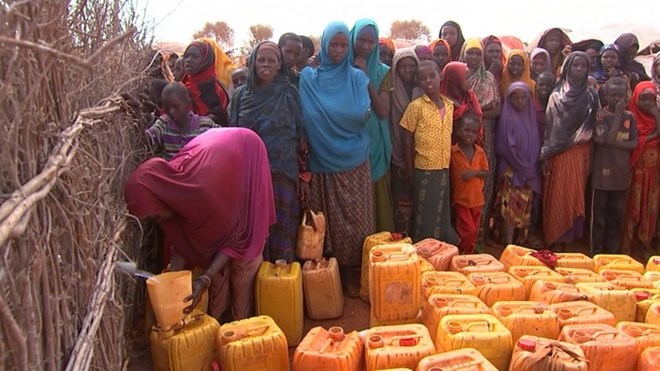
People queue for water in a camp in the Somalian town of Baidoa. Credit: ITV News
Abaay tells me both her grandmother and mother are dead. They fell sick after drinking from the well in their home village.
The water was sour, a neighbour explains. First came the stomach pains, then the sickness and diarrhoea, then death.
"We had no water, even to wash their bodies,’" said Abaay.
Simon Nyabwengi, Somalia Country Director of World Vision, said: "Almost every other woman we speak to seems to have lost a child or a husband.
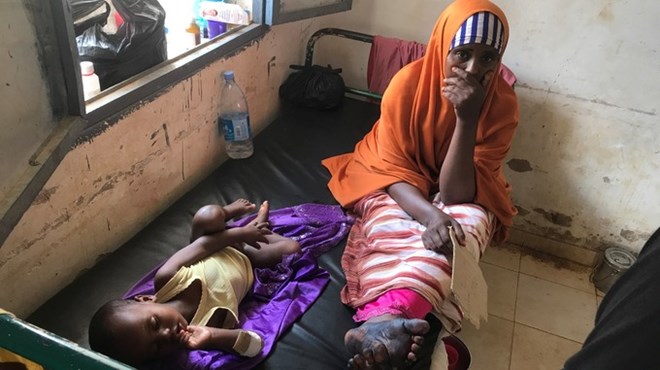
A young boy recovering from cholera with his mother at his bedside. Credit: ITV News
"There are horrendous stories we are hearing of families losing four, five, six children. And they are losing those children walking to where they expect to get help.”
So far there have been 21,000 officially reported cases of cholera and more than 500 deaths.
But they are only the statistics they can count. No-one really knows what is happening out in the villages.
The true death toll might already run into the several thousands.
The countryside outside Baidoa is dominated by Al Shabab; which has denounced foreign aid and attacked aid workers.
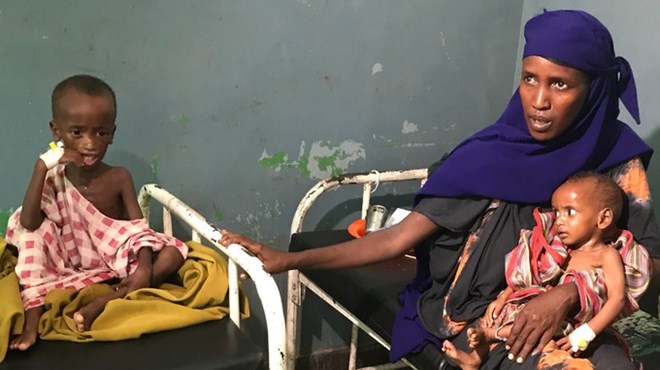
Ali,
his brother Ibrahim and mother Fatima fled their village, 80 miles from
Mogadishu, where there is no food and little water. Credit: ITV News
The cholera outbreak is the latest escalation of an emergency that threatens to dwarf the already sizable humanitarian response.
If the drought continues, then it is thought more than 185,000 children could be at imminent risk of starving to death.
"The world has responded with great generosity but the scale of this crisis is outstripping our ability to deal with it," said Nyabwengi.
Al Shabab, three years without rain, and now cholera. A lethal combination.
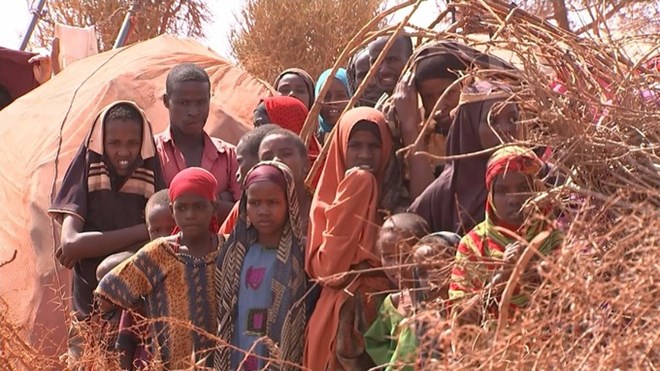
Hunger has driven half a million Somalis to leave their homes. Credit: ITV News
"We call it the witches brew," said Nyabwengi.
Outside her tent, Muraysa Sankus nurses her infant daughter, Fatima.
At the camp, she will receive emergency rations that will save her daughters life.
But Muraysa says she has three more children who were too weak to make the journey.
"They could not stand or walk," she said. "I had to leave them at home with their grandmother. They are in the care of god. Only he will decide what will happen to them."
For more on how you can make a donation, visit the World Vision and the Unicef website.
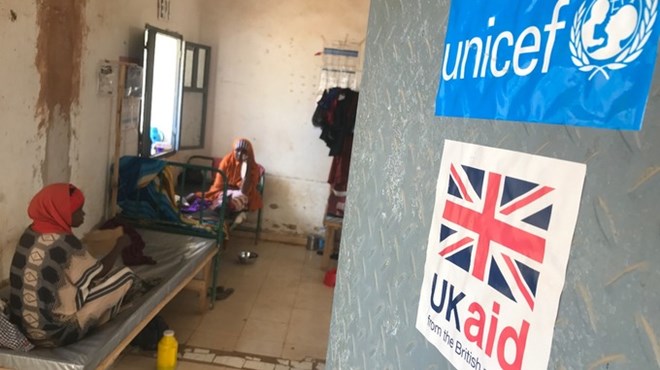
The UN says it only has two thirds of the money it needs to cope with the crisis. Credit: ITV News